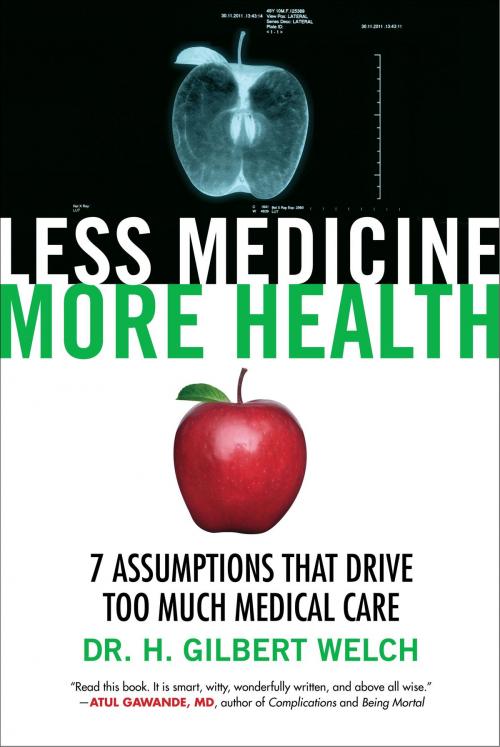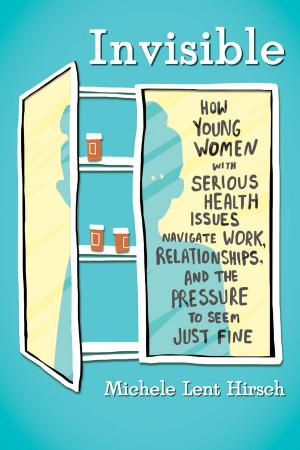Less Medicine, More Health
7 Assumptions That Drive Too Much Medical Care
Nonfiction, Health & Well Being, Medical, Reference, Health Risk Assessment, Patient Care, Diagnosis, Public Health| Author: | Gilbert Welch | ISBN: | 9780807071656 |
| Publisher: | Beacon Press | Publication: | March 3, 2015 |
| Imprint: | Beacon Press | Language: | English |
| Author: | Gilbert Welch |
| ISBN: | 9780807071656 |
| Publisher: | Beacon Press |
| Publication: | March 3, 2015 |
| Imprint: | Beacon Press |
| Language: | English |
The author of the highly acclaimed Overdiagnosed describes seven widespread assumptions that encourage excessive, often ineffective, and sometimes harmful medical care.
You might think the biggest problem in medical care is that it costs too much. Or that health insurance is too expensive, too uneven, too complicated—and gives you too many forms to fill out. But the central problem is that too much medical care has too little value.
Dr. H. Gilbert Welch is worried about too much medical care. It’s not to deny that some people get too little medical care, rather that the conventional concern about “too little” needs to be balanced with a concern about “too much”: too many people being made to worry about diseases they don’t have—and are at only average risk to get; too many people being tested and exposed to the harmful effects of the testing process; too many people being subjected to treatments they don’t need—or can’t benefit from.
The American public has been sold the idea that seeking medical care is one of the most important steps to maintain wellness. Surprisingly, medical care is not, in fact, well correlated with good health. So more medicine does not equal more health; in reality the opposite may be true.
The general public harbors assumptions about medical care that encourage overuse, assumptions like it’s always better to fix the problem, sooner (or newer) is always better, or it never hurts to get more information. Less Medicine, More Health pushes against established wisdom and suggests that medical care can be too aggressive. Drawing on his twenty-five years of medical practice and research, Dr. Welch notes that while economics and lawyers contribute to the excesses of American medicine, the problem is essentially created when the general public clings to these powerful assumptions about the value of tests and treatments—a number of which are just plain wrong.
By telling fascinating (and occasionally amusing) stories backed by reliable data, Dr. Welch challenges patients and the health-care establishment to rethink some very fundamental practices. His provocative prescriptions hold the potential to save money and, more important, improve health outcomes for us all.
The author of the highly acclaimed Overdiagnosed describes seven widespread assumptions that encourage excessive, often ineffective, and sometimes harmful medical care.
You might think the biggest problem in medical care is that it costs too much. Or that health insurance is too expensive, too uneven, too complicated—and gives you too many forms to fill out. But the central problem is that too much medical care has too little value.
Dr. H. Gilbert Welch is worried about too much medical care. It’s not to deny that some people get too little medical care, rather that the conventional concern about “too little” needs to be balanced with a concern about “too much”: too many people being made to worry about diseases they don’t have—and are at only average risk to get; too many people being tested and exposed to the harmful effects of the testing process; too many people being subjected to treatments they don’t need—or can’t benefit from.
The American public has been sold the idea that seeking medical care is one of the most important steps to maintain wellness. Surprisingly, medical care is not, in fact, well correlated with good health. So more medicine does not equal more health; in reality the opposite may be true.
The general public harbors assumptions about medical care that encourage overuse, assumptions like it’s always better to fix the problem, sooner (or newer) is always better, or it never hurts to get more information. Less Medicine, More Health pushes against established wisdom and suggests that medical care can be too aggressive. Drawing on his twenty-five years of medical practice and research, Dr. Welch notes that while economics and lawyers contribute to the excesses of American medicine, the problem is essentially created when the general public clings to these powerful assumptions about the value of tests and treatments—a number of which are just plain wrong.
By telling fascinating (and occasionally amusing) stories backed by reliable data, Dr. Welch challenges patients and the health-care establishment to rethink some very fundamental practices. His provocative prescriptions hold the potential to save money and, more important, improve health outcomes for us all.







![Cover of the book Beaver At His Parents' [Episode 1] by Gilbert Welch](https://www.kuoky.com/images/2014/november/300x300/1230000279927-gS1h_300x.jpg)







